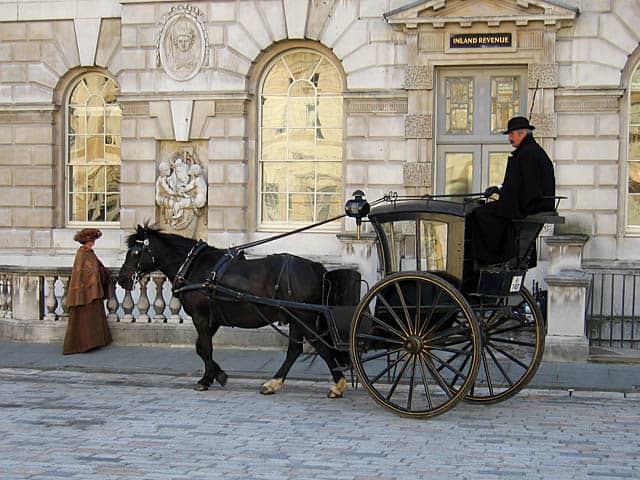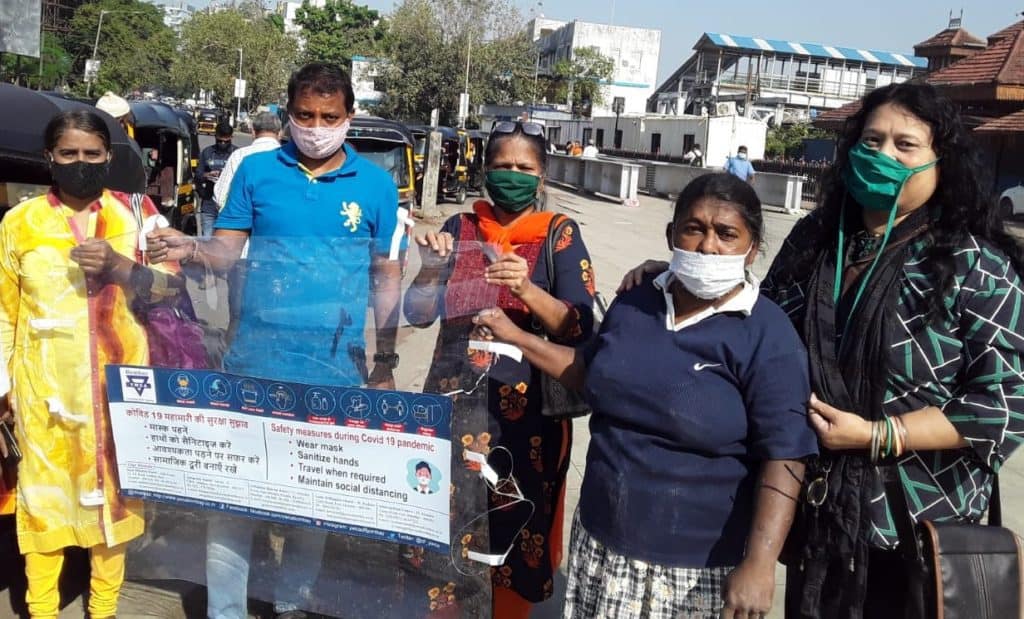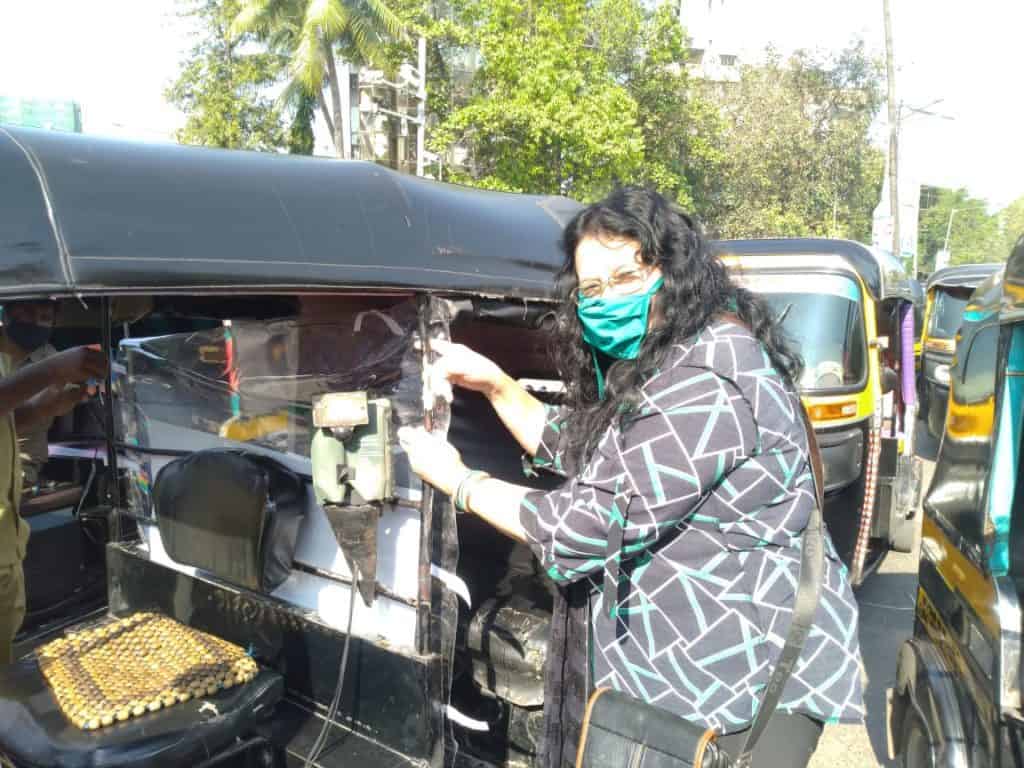In a few of the English movies I have seen, I recall seeing London Black Cabs, in which a firm partition isolates the driver from the passengers, with a small window for communication.
Even in the days of Sherlock Holmes and horse-drawn Hansom Cabs, we see that the passengers are separated from the driver – some sort of social distancing.
So, the idea of social distancing in small public transport vehicles is not really new.

In June, when the city of Mumbai started opening up after lockdown, auto and taxi unions advised drivers to install plastic separator sheets in their vehicles as a safety measure.
Everyone has the fear of catching COVID19, and given that drivers ferry many passengers daily, they are definitely at high risk. Still, having been out of work and with no income, Rs 500-1000 was not something many of them could spend on.

Even now, after several months, most of the autos and taxis do not have separators between the driver and the passengers. So members of the Young Womens’ Christian Association (YWCA) of Bombay decided to step in.
Over the weekend, auto drivers at Bandra West Station were in for a surprise Christmas gift. The staff and a few members of YWCA fixed plastic separator “isolation” sheets in about 100 auto rickshaws.
Sponsored by YWCA, the transparent sheets are easy to install and clean, and have COVID awareness messages for the passengers to read.

We are grateful for this opportunity to help to protect the health of both auto drivers and passengers.
Now with the feeling of safety while riding in autos in Bandra West, please don’t forget to wear your masks.
Keep up the good work Jane…hats off to your entire team. God bless
Responsible citizens
Good job Jane & team you people rock
Very good Christmas gift.keep it up.love u Mumbai